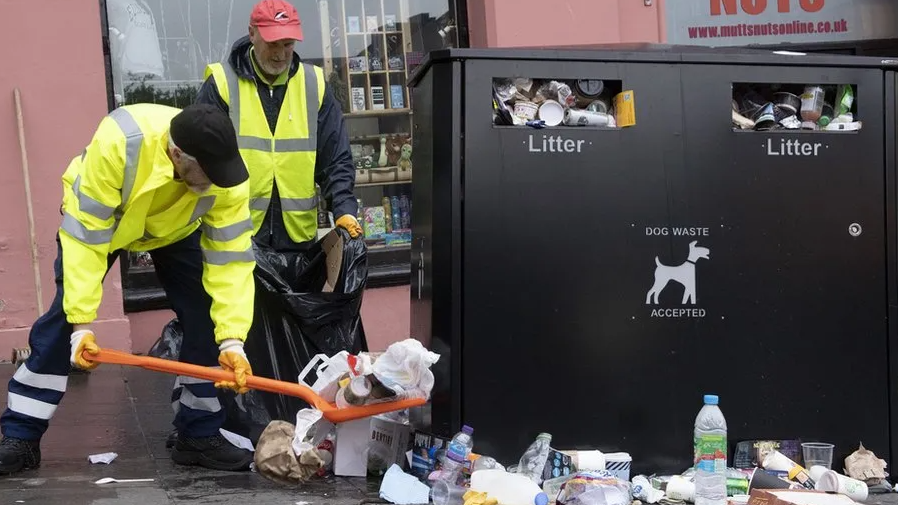Fuel decision a sign of tough choices for finance secretary
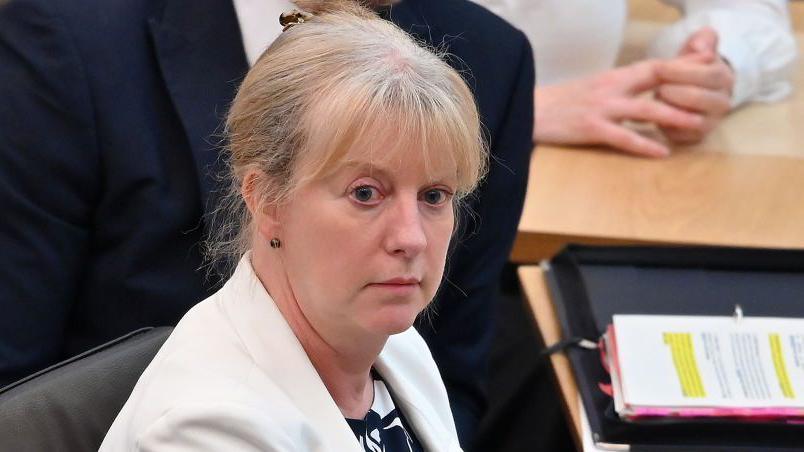
Shona Robison warned of tough cuts this financial year.
- Published
Shona Robison, Holyrood’s finance secretary, has started to realise that her role brings power but carries the requirement to get tough on colleagues.
She no longer has the role of a spending minister, responsible for growing the economy. That's for Kate Forbes.
She's focussed on being the guardian of the budget, and her job is to say no to those asking for more.
Her letter warning of tough cuts during this financial year was sent to other ministers. This is an internal task of government to get its own budget balanced, and to be much sharper about its priorities.
This became public, probably by no coincidence, on the day that the Government Expenditure and Revenue Scotland (GERS) was published, telling a familiar tale of Scotland's spending remaining well above the UK as a whole.
With the independence cause knocked back by last month's Westminster election result and lacking momentum, this was not a good time for SNP ministers to engage in debate about Scotland's fiscal difficulties if it were to be independent.
The GERS figures are unhelpful to the cause, as they reflect both a dependence on oil and gas to make the tax figures look similar to the UK as a whole.
And the spending figure has an advantage to Scotland as well as Wales and Northern Ireland built into it, from the funding formula now heading for its 50th anniversary.
So while the emergency controls on avoidable spending is for ministers to implement, the public task on GERS day has been to focus on this year's budget and some tough decisions coming soon.
Where will the cuts come?
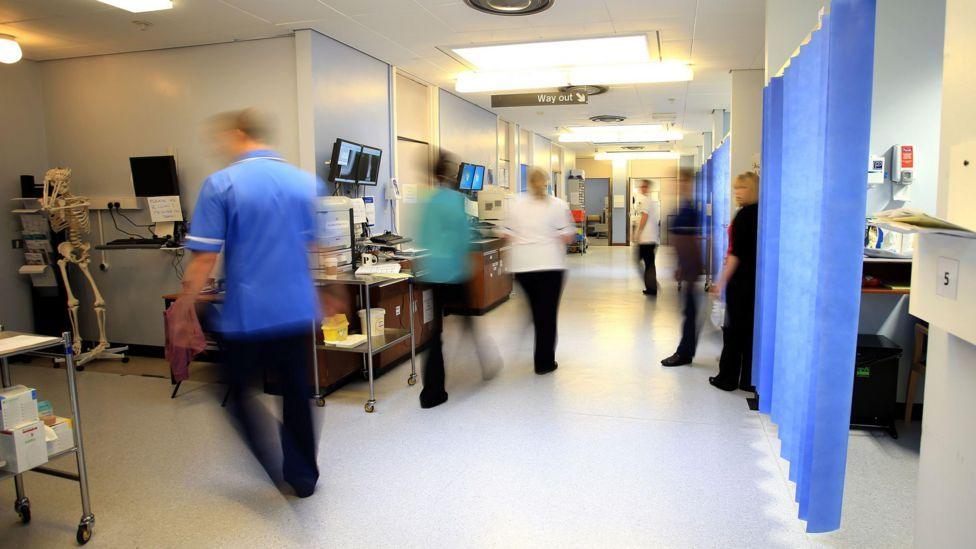
Some roles in the NHS will be exempt from the recruitment freeze
Ms Robison would not be drawn on where the cuts could come, except that a recruitment freeze will do a lot of the heavy lifting.
It's relatively easy, but not painless.
Some roles in the NHS will be exempt from the freeze, but many frontline roles will not.
That puts pressure on the staff who are filling in the gaps, it raises questions for people who have finished training and were promised NHS jobs, and it means that the staff needed to bring NHS waiting lists down will not be there. Expect unwanted consequences in NHS performance.
The same goes for other public services. Those with the highest vacancy rates - social work springs to mind - will likely face the worst of the freeze.
The question mark over in-year cuts will also hang over the continued subsidy of peak time rail fares, and the planned extension of free school meals.
Much of this pressure comes from in-year pay deals for public sector workers. Shona Robison complains that agreements struck by the UK government, accepting the recommendations of independent pay review bodies, will partly apply to the Scottish government (senior doctors and civil servants) and will partly influence negotiations in Scotland.
These still being negotiated include junior doctors and Scottish teachers, while the local government pay dispute, which was to have brought a stop to bin collections in most of the country from Wednesday, is not over.
It's only paused while unions consider the raised offer last week.
ScotRail workers will soon be setting out their plans for industrial action, and now out of private hands, they are looking to Scottish ministers to ensure their employers have the funds to meet their demands.
Shona Robison and other ministers boast about the avoidance of strike action so far. But there is a risk that doing whatever it takes to avoid strikes will encourage unions to push further, and requiring deeper cuts outside of pay.
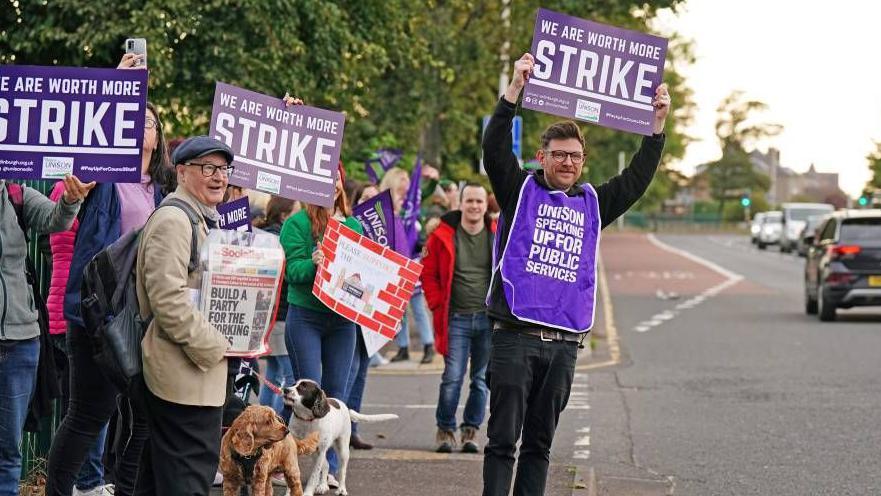
Public sector strikes have put pressure on the government's finances
All this is about the 2024-25 financial year. After the UK Budget is set out on October 31, the next big step is for Ms Robison to publish a draft budget for Holyrood for the year starting next April.
For that, likely in November and to have a 'tax strategy' published alongside, bigger questions will be asked.
Can higher tax rates on higher earners continue to take the strain, which was where Shona Robison’s political ally, Humza Yousaf, put his emphasis as First Minister, or is the new SNP leadership wanting a change of direction on that approach?
Can the Scottish Government maintain its policy of no compulsory redundancies? It hopes so, but it may not be able to do that.
Is it time to give way on the universal provision of free services, from student tuition to NHS prescriptions, via social care payments and eye tests?
The logic of tougher financing and difficult decisions is that the money Ms Robison controls ought to be better targeted.
While the SNP has been dogged in its offer of universal provision, that means it is not targeted and tends to benefit better off Scots.
Calls for clearer leadership
The answers are not just for SNP ministers. The governing party no longer has enough votes to get that budget through, and there could be hard negotiations with Holyrood's opposition parties if the budget legislation is to pass.
The auditor-general, Stephen Boyle, set up this new stage of an increasingly stark and consequential public finance debate with a blog this week carrying some blunt messages for Ms Robison and other ministers.
He was calling for clearer leadership and better governance. He criticises the practice of leaving other agencies to deliver on government targets and ambitions.
And the official spending watchdog said public sector reform has been too slow, and is now urgent.
Neglecting it is pushing problems down the road, which will only be bigger when they have to be confronted.
- Published14 August 2024
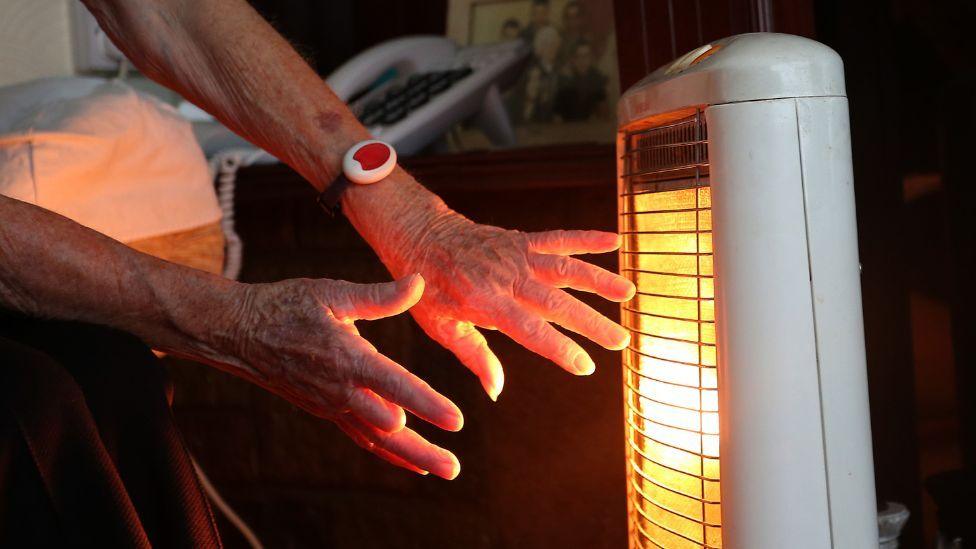
- Published14 August 2024
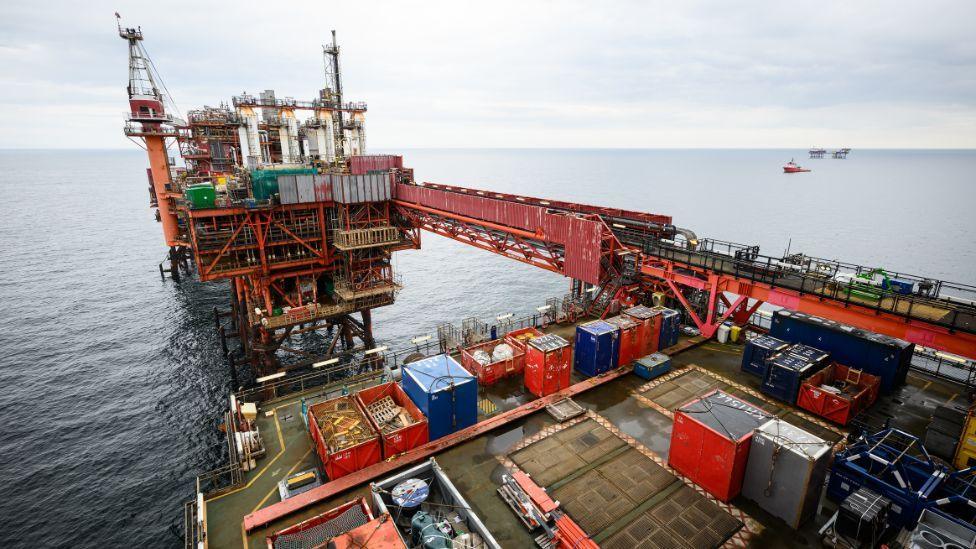
- Published12 August 2024
